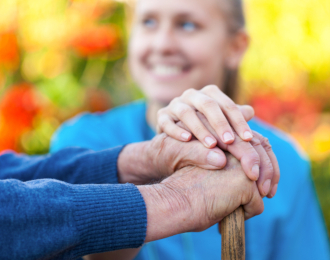Elder abuse is basically any act than can cause harm or distress to an elderly person. It can be psychological, physical, emotional or financial. All to often the victim will not complain or if they do, no one listens.
Since 2012 the United Nations has designated June 15 as World Elder Abuse Awareness Day to help shed light on the abuse and suffering that is all to often inflicted upon our older generations.
In support of this we would like to share some information they may help in preventing the abuse of the elderly.
Some indicators that abuse may be occurring to someone you know can be:
- Self isolation.
- Confusion regarding property or belongings.
- Carer stress
- Disparity between living conditions and money.
- Inability to access bank accounts
- Unexplained sadness, loss of self esteem, fear or helplessness.
- Sings of neglect - poor hygiene, lack of clothing, poor diet, lack of medication, malnutrition.
- Unexplained injuries - bruises, sprains, lacerations, burns.
- Anxiety or fear when with the perpetrator.
Older people have the right to dignity and respect and to live in a safe environment. If you are an elderly person there are some steps you can take to protect yourself against abuse.
- If you are in an emergency situation where you believe you or someone else is at risk of harm, call 000 for assistance.
- You can contact the Seniors Rights Service on 1800 424 079 or visit www.seniorsrightsservice.org.au for advice on how to protect yourself financially and legally.
- You can call the NSW Elder Abuse Helpline on 1800 628 221.
If you are a carer , friend or relative of an elderly person who you suspect is suffering from abuse your need to consider your approach.
If the elderly person has the capacity to make their own decisions and refuses help, you should respect their choice but you could provide them with information that explains their rights and options. You can also ensure that the person has open channels of communications with you or other trusted persons so they can discuss the issue at any time.
If the elderly person has an impaired ability to make their own decisions, you should discuss the matter with the appropriate decision maker. If you suspect that the trusted decision maker is the perpetrator, turn to other trusted friends, carers or family to help.
Again, if you believe the person to be in an emergency situation, contact 000 for assistance but please consult with the elderly person first to gain their permission if possible. Otherwise you can contact the NSW Elder Abuse Helpline on 1800 628 221 who will be able to assist you. Be sure to provide as much information as possible about the situation and be honest.
For further information about elder abuse, the NSW Elder Abuse Helpline as developed an Elder Abuse Toolkit as a resource that anyone can download.




 As an inclusive, safe, and respectful organisation which celebrates diversity and actively supports the inclusion of children, young people, and adults from LGBTIQ+ communities, people with disabilities, people from diverse cultural and linguistic backgrounds and people with diverse religious beliefs or affiliations.
As an inclusive, safe, and respectful organisation which celebrates diversity and actively supports the inclusion of children, young people, and adults from LGBTIQ+ communities, people with disabilities, people from diverse cultural and linguistic backgrounds and people with diverse religious beliefs or affiliations.